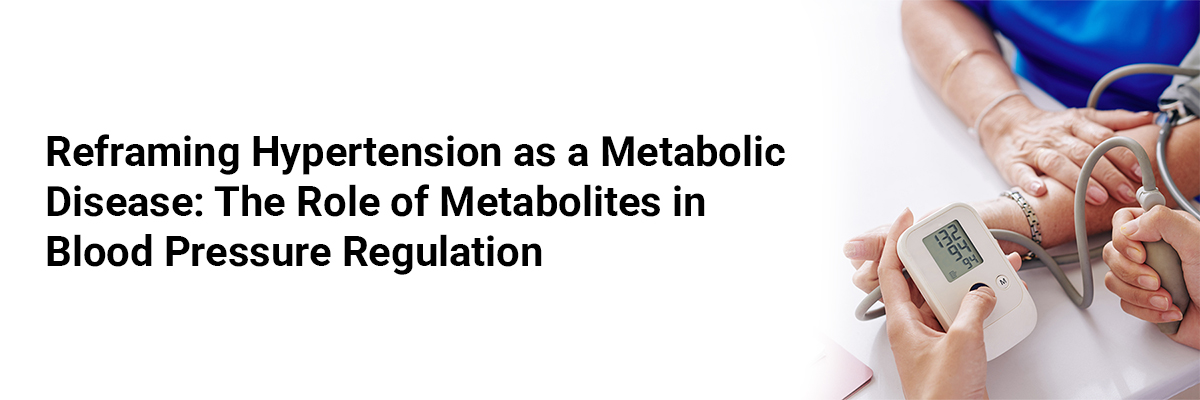
Reframing Hypertension as a Metabolic Disease: The Role of Metabolites in Blood Pressure Regulation
Essential hypertension has been investigated for over a century through diverse lenses—including genetics, physiology, immunology, and more recently, microbiology. Among these, the gut microbiota has emerged as a previously underappreciated factor influencing the pathogenesis of hypertension. While each discipline has contributed uniquely to our understanding of blood pressure regulation, significant breakthroughs in clinical management remain limited.
A growing body of evidence now points toward metabolic dysfunction as a key driver of essential hypertension. This review explores the metabolic underpinnings of hypertension by examining both animal models and human studies.
In experimental settings, the Dahl Salt-Sensitive (S) and Salt-Resistant (R) rat models have been instrumental in dissecting the genetic basis of hypertension. S rats develop both hypertension and insulin resistance when exposed to high-salt diets, unlike their R counterparts. Notably, these metabolic abnormalities precede the onset of hypertension, suggesting shared regulatory pathways. The SS/MCW rat strain, for example, exhibits reduced fumarase activity, leading to the accumulation of tricarboxylic acid (TCA) cycle intermediates that contribute to elevated blood pressure. Additionally, mutations in the Cyp11b1 gene, which influence adrenal steroid metabolism, have also been linked to salt sensitivity and hypertension in S rats.
Similarly, Spontaneously Hypertensive Rats (SHR) display marked metabolic disturbances. Genetic analyses have identified Cd36 as a pivotal gene associated with both insulin resistance and hypertension in this model.
Human studies corroborate these findings. Genome-wide association studies (GWAS) have revealed associations between hypertension and genes involved in lipid metabolism, further reinforcing the link between metabolic dysregulation and blood pressure.
Taken together, these insights suggest that essential hypertension may be more accurately conceptualized as a metabolic disorder. Addressing metabolic health could therefore be critical to effective blood pressure management. Future research should further investigate the influence of microbial and host-derived metabolites—as well as hepatic function—in the pathophysiology of hypertension.
Source: doi: 10.1161/HYPERTENSIONAHA.120.13896. Epub 2020 Apr 27. PMID: 32336227; PMCID: PMC7225070













Please login to comment on this article